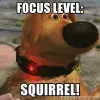Labels can apply to anyone but they don’t show you what the person is like for being themselves, who is the person beyond those labels
Here are some similar aphorisms:
- It is what it is.
- Patience is a virtue.
- Success breeds success.
- You must be a friend to get a friend.
- Life isn’t fair.
Statements like these are truisms. They are widely accepted and often broad enough that they can easily be turned against their intended purpose. For instance, you could use “no labels” to say that people shouldn’t be racist. But you can also use it when people are pointing out or trying to correct racism, because correcting racism necessarily involves pointing out the racializing labels that are applied to people. They can also be used by dominant groups to say “don’t label me as a member of the dominant group” in order to mask the material benefits they are receiving as members of said group.
They are widely accepted and often broad enough that they can easily be turned against their intended purpose.
I understand that can happen, racists and bigots like to take whatever they can and twist its meaning and I don’t intend to mean anything negative with my post
A bigot is still a bigot even if they don’t like to call themself one and everyone can see that they are a bigot with their childish bigoted attitudes
Not everyone can see whether someone else is a bigot or not. Especially with things that are culturally ingrained or relatively obscure.
There’s a difference between someone who makes a mistake but is willing to learn from it and those that make a mistake but aren’t willing to accept it.
A truism is a statement that is so widely accepted, it adds nothing new for the reader or listener
I disagree with That because they can help you to think in new ways or perspectives
Some of the comments here have already taught me new ways of seeing people that I would never have thought of
Like, Don’t judge a book by it’s cover?
Similar to the labels quote, the phrase “Nothing about us, without us” has been popular in marginalised groups.
“Autism Speaks” comes to mind.
I had never heard of this phrase before but I like it because it summarises the issue of people of marginalised groups not being involved in decision making and I hate that issue because only the people of those marginalised groups know what they need best but they aren’t given an opportunity to be involved
I think people should learn to recognize their own feelings instead of reporting whatever feeling is predicted by their mental model of their self.
If you’re patient you won’t have to guess – people will show you their worth, quite eagerly.
Withholding judgement on someone’s words until you see their actions is an important one to me. As is the flip-side to that - if someone shows you who they are: believe them.
Public figures are good practice for fine-tuning your response to both of these.
Call yourself what you like, declare your position this way or that, fine, but Actions > Words.
All labels create division, intended or not. There is oneness in all living beings, we know this when we are born, but by the age of 5, we develop our own identity, we see the you & I as separate, the haves & the have nots, & suddenly we have two-ness. Early Eastern religions also taught this.




